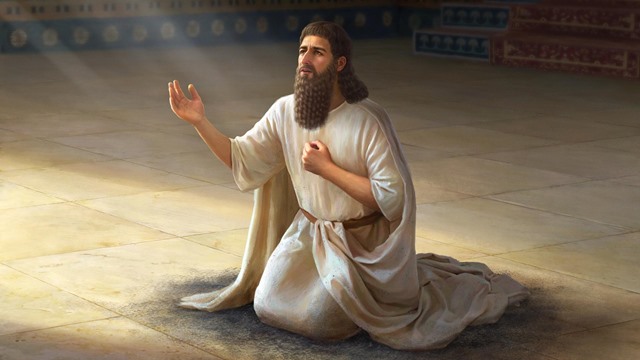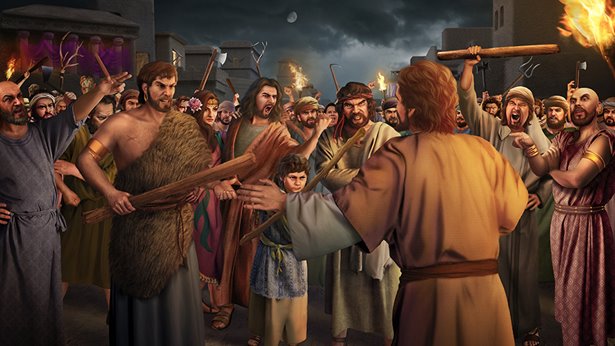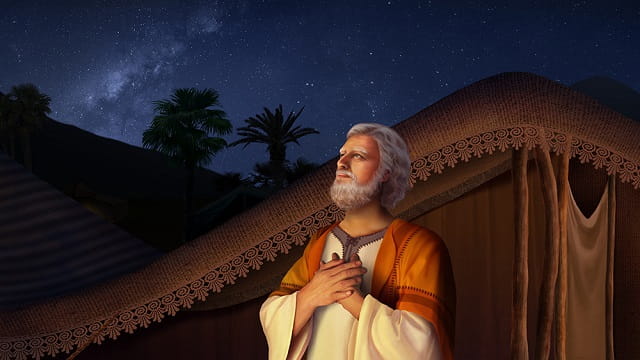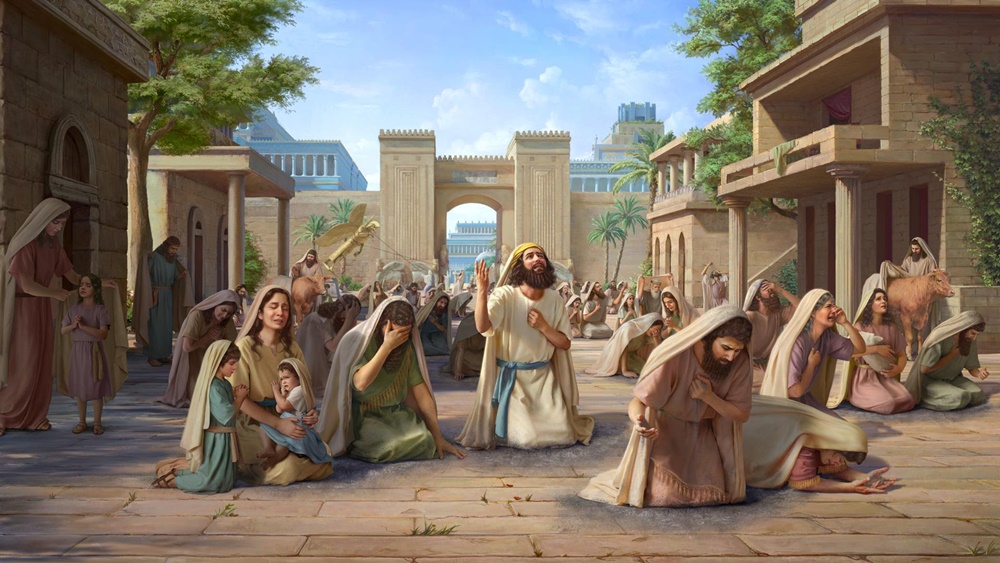The Repentance of Nineveh’s King Wins Jehovah God’s Commendation

The Repentance of Nineveh’s King Wins Jehovah God’s Commendation
When the king of Nineveh heard this news, he arose from his throne, took off his robe, dressed himself in sackcloth and sat in ashes. He then proclaimed that no one in the city would be allowed to taste anything, and that no sheep, oxen or any other livestock would be allowed to graze or drink water. Man and livestock alike were to don sackcloth, and the people were to make earnest entreaties to God. The king also proclaimed that every one of them would turn away from their evil ways and forsake the violence in their hands. Judging from this series of actions, the king of Nineveh had true repentance in his heart. This series of actions he took—arising from his throne, casting off his king’s robe, wearing sackcloth and sitting in ashes—tells people that the king of Nineveh was laying aside his royal status and donning sackcloth alongside the common people. This is to say that the king of Nineveh did not occupy his royal post to continue his evil way or the violence in his hands after hearing the announcement from Jehovah God; rather, he laid aside the authority he held and repented before Jehovah God. At this moment the king of Nineveh was not repenting as a king; he had come before God to repent and confess his sins as an ordinary subject of God. Moreover, he also told the entire city to repent and confess their sins before Jehovah God in the same manner as he had; additionally, he had a specific plan for how to do so, as seen in the scriptures: “Let neither man nor beast, herd nor flock, taste any thing: let them not feed, nor drink water: … and cry mightily to God: yes, let them turn every one from his evil way, and from the violence that is in their hands.” As the city’s ruler, the king of Nineveh possessed supreme status and power, and could do anything he wished to. When faced with Jehovah God’s announcement, he could have ignored the matter or simply repented and confessed his sins alone; as for whether or not the people in the city chose to repent, he could have completely ignored the matter. However, the king of Nineveh did not do this at all. Not only did he arise from his throne, wear sackcloth and ashes and repent and confess his sins before Jehovah God, but he also ordered all people and livestock within the city to do the same. He even ordered the people to “cry mightily to God.” Through this series of actions, the king of Nineveh truly accomplished that which a ruler should. His series of actions is one that was difficult for any king in human history to achieve, and indeed, no other king achieved these things. These actions can be called unprecedented in human history, and they are worthy of being both commemorated and imitated by mankind. Since the dawn of man, every king had led his subjects to resist and oppose God. No one had ever led his subjects to entreat God to seek redemption for their wickedness, receive Jehovah God’s pardon and avoid imminent punishment. The king of Nineveh, however, was able to lead his subjects to turn to God, to leave their respective evil ways behind and abandon the violence in their hands. Furthermore, he was also able to put aside his throne, and in return, Jehovah God had a change of mind and felt regret, retracting His wrath and allowing the people of the city to survive, keeping them from destruction. The king’s actions can only be called a rare miracle in human history, and even a model example of corrupt humanity repenting and confessing their sins before God.
Excerpted from “God Himself, the Unique II” in The Word Appears in the Flesh





